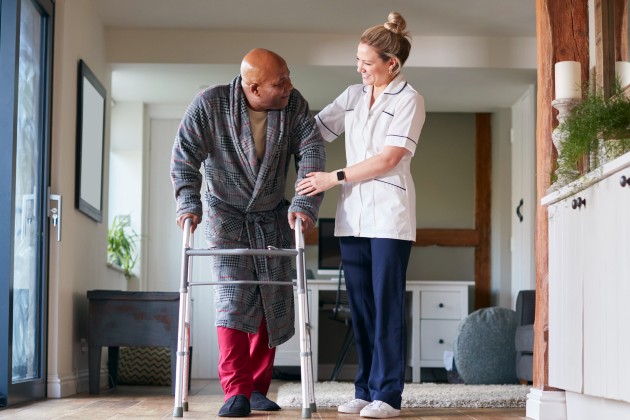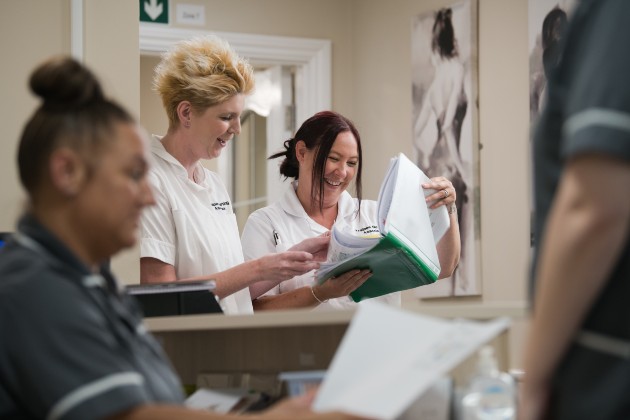Elections and appointments to 51���� committee roles are open throughout the year, providing opportunities to expand your professional network, gain leadership skills and shape the direction of our work.
Here, we talk to Kendal – who sits on the steering committee of the RCN Defence Nursing Forum and was the student representative on the RCN’s Professional Nursing Committee (PNC) from 2019 to 2021– about why members should consider putting themselves forward:
- Opening doors and networking
Kendal felt particularly inspired by other members of the RCN’s Professional Nursing Committee (PNC) she met during her time as student representative. “They had such impressive experience,” she says. “It was brilliant working with such an inspiring group of people, who I don’t think I would have met otherwise.”
As a committee member, you can attend the RCN’s annual Congress, meeting colleagues from all over the UK, who are working in a variety of settings at every level. You are also invited to attend various conferences and other events, sometimes meeting key decision-makers, such as MPs.
“It’s excellent for building your networks,” says Kendal. “I’m an adult nurse, but through my work on the committee I’ve had much more exposure to other fields of nursing, including learning disability, children’s and mental health. It improves your overall understanding of the profession.”
2. Gaining valuable skills, such as leadership
“I’d had a lot of professional experience before I came into nursing,” says Kendal. “Although I was enjoying my clinical work, you don’t always get the challenges of leadership and management when you’re a student nurse. I needed to scratch that itch.”
As part of your role on an 51���� committee, you can develop your strategic and critical thinking skills, boosting your future employability, with leadership becoming an increasingly important aspect of all nursing roles.
“You’re articulating different arguments and considering a wide range of issues, all of which help you develop both professionally and personally,” says Kendal.
New committee members have an induction, with training provided as necessary, including media skills so you can become a spokesperson. “I think the PNC is for everyone and you don’t necessarily have to want to be a manager,” says Kendal. “It gives you the chance to enhance so many different and transferable skills.”
3. Being a voice for nursing
“I’m passionate about all nursing issues and want to advocate for them, both for our professional development and for what we need to be able to practise safely,” says Kendal. “As the only student nurse on the PNC, there is a lot of responsibility, but that’s what I enjoy.”
She was vice chair of the RCN Students’ Committee too. “I had the support of that committee and it was really useful to be able to bounce ideas around with other members and use their regional knowledge to ensure I was representing the views of as many students as possible,” says Kendal.
As Kendal’s time on the PNC coincided with the pandemic, much of her role involved supporting nurses, especially students, during their critical work.
“Student nurses were brought into the workforce at a much earlier stage of their studies, with our PNC role making sure that was done appropriately and safely,” Kendal explains. “We were their advocates with national bodies.”
4. Making long-lasting connections
“As a committee member, you meet lots of like-minded people who share a common passion for nursing,” says Kendal. “Now if I have a problem where I need some advice, I have a vast network of people I can draw on, who will have that experience. I feel I’ve made lifelong relationships with those I worked with during that time.”
All elected roles should reflect the diversity of the membership and the communities they serve, says the RCN, with members working in the NHS, independent health and social care, and the third sector.
5. Influencing the future of the profession
As a student representative, Kendal worked with other committee members on education and development projects, helping to shape future directions. She found everyone listened closely to what she had to say.
“I know sometimes students can feel they’re not heard,” she says. “But on the committee, I felt my opinion was always asked. If I was quiet during a meeting, someone would always ask what I thought, listening closely.”
How to put yourself forward
Nominations are currently open for both the PNC – which oversees professional matters affecting nursing – and the Trade Union Committee (TUC) – which makes decisions around the RCN’s trade union functions and activities.
To find out more about each committee’s work, the responsibilities of being a member and how to apply, visit the RCN election pages.
Nominations for the PNC close on 1 September and for the TUC on 6 September.

Kendal Andreason, formerly Moran, is now a registered army nurse. She is working on the UK’s support to Ukraine from the Ministry of Defence in Whitehall. She also sits on the chief nursing officer’s early career nurse shared professional decision-making council.








